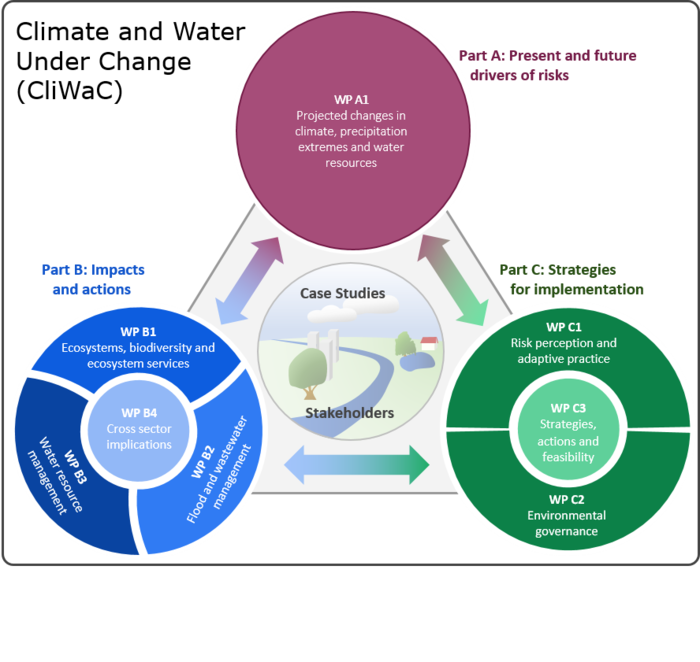Climate and Water under Change
Fresh water is a key resource for human life, natural and agricultural ecosystems, and many aspects of societal and economic systems. Climate change will affect the availability and the quality of fresh water particularly, through altering the characteristics and frequency of extremes such as droughts and flooding. This in turn puts the functioning of water-related sectors and ecosystem services at risk. The Einstein Research Unit Climate and Water under Change (CliWaC) is a research initiative designed to harness and further develop the unique potential of the Berlin University Alliance and various non-university institutes and stakeholders in the Berlin-Brandenburg region to address water-related risks under climate change. In an innovative methodological way, CliWaC will bring together social and natural science as well as practical expertise from stakeholders in an interdisciplinary and transdisciplinary project to support the governance of mitigation and adaptation measures in response to climate change.
Four overarching research questions shall be pursued:
- How will climate change affect different human-environment systems with respect towater-related hazards and the availability of good quality water?
- What potential solutions do exist for managing water resources and making humanenvironment systems resilient to water-related hazards?
- Which forms of governance are available for coping with emerging challenges and implementing solutions and how can these be coordinated between stakeholders across administrative borders?
- Which barriers resulting from legal issues, administrative constraints, public perception and related adaptive practices can be identified and how can they be overcome?
In addressing these questions, CliWaC will focus on the model region Berlin-Brandenburg, as it is characterised by a complex combination of contrasting natural, societal and political conditions. Additionally, the different needs, options and perceptions of urban and rural areas provide a challenging setting. Water-related research topics addressed by CliWaC are (i) ecosystems, biodiversity and ecosystem services, (ii) flood and wastewater management and (iii) water resource management. With a strong transdisciplinary approach, the research will focus on three case studies: a lake system and its surrounding area; the Spree catchment; and urban infrastructure that is heavily impacted by extreme rainfall events. They represent significantly different systems and challenges embedded in diverse social-ecological contexts. CliWaC`s scientific work programme is composed of three closely interlinked parts that will proceed in parallel. Part A analyses and quantifies present and future drivers of risks and their uncertainty. Part B assesses the impacts of climate change and actions in and across sectors. Part C addresses strategies for implementation of action. The three case studies representing major challenges addressed by CliWaC will integrate non-academic actors in research across the WPs. As a transdisciplinary research project, CliWaC will target solutions by supporting agents and actors in developing and implementing effective and coordinated action. Vice versa, the fundamental research within CliWaC will benefit from the data, information and knowledge provided by these agents through shared workflows that address climate impacts, systems responses, forms of governance and societal dynamics.

